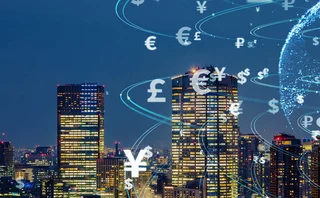Anthony Malakian: Questions Abound About Machine Learning
"There’s a lot of promise in machine learning, but there are still massive unknowns and risks."

Over the past six months, several major scientific breakthroughs were announced. Most notably, in late January it was announced that the Laser Interferometer Gravitational-Wave Observatory (LIGO) had recorded the existence of gravitational waves, confirming a theory Albert Einstein formed 100 years ago.
A month later, researchers at the University of Southampton announced that they had created a five dimensional (5D) digital data recording and retrieval process using nanostructured glass that allows for 360 TB/disc data capacity. Put plainly, it can record human information in its entirety and remain stable for 13 billion years.
And on a lesser scale—but still important and fascinating—developers at Google put out a research report in the publication Nature detailing how it built an artificial intelligence (AI) program that beat a human in the 2,500-year-old game of Go, considered to be the most complex board game in the world. While researchers thought they were still a decade away from achieving that feat, by combining machine-learning techniques, the program, AlphaGo, was able to beat the European Go champion, Fan Hui.
Humans Not Irrelevant … Yet
For the March issue of Waters I wrote about advancements in machine learning, and examined how it and various AI techniques are helping capital markets firms. I also looked at where there is still more hype than reality. Usually when you hear about AI and machine learning, there’s some Cyberdyne/Skynet reference to the rise of the machines and enslaving humanity. It’s good fodder for movies, but it’s nowhere near reality—we hope.
Where artificial learning is seeing the greatest uptake is as a decision-support tool and a way of making a trader more efficient.
While it’s true that there have been some major leaps forward in the field of AI—of which machine learning is a subset—firms are still limited in terms of what these programs can achieve. Where artificial learning is seeing the greatest uptake is as a decision-support tool and a way of making a trader more efficient.
For the foreseeable future, there will always be a need for a highly skilled person to be involved in the process, while the machine takes on those functions where inefficacy is detracting from value, says Henri Waelbroeck, director of research at Portware, whose Alpha Vision platform is based on machine-learning technology.
“Machine learning has a role to play to provide asset managers with complementary information that helps them view what the world might look like under different scenarios and manage their risk more effectively than under current risk models,” he says.
For 2016, rest assured that you will see a lot of vendors hitching their carts to the machine-learning bandwagon. As with cloud, users will have to conduct a fair amount of due diligence to understand which systems are really built on a machine-learning engine, and which are just powerful processors.
It’s also true that regulators and asset managers are going to have to start to better understand how these platforms trade. Neuron Capital CEO Robert Hillman wrote an interesting paper titled, Machine Learning in Finance—25 Years On. In it, he raises a number of intriguing questions, such as: What constitutes a “trading error” by these machines; and from a legal perspective, what has to be reported to investors? “What is an error when the trading system is following an AI-inspired machine-learning approach?” he asks. “Unprofitable trades will be made.”
Also, what constitutes spoofing? “An explorative algo might want to submit an order to a market in order to test the liquidity or resilience of the market. The market response might cause it to cancel the order,” Hillman writes. “There may have been no intention by the algo to commit to trade the full amount posted. … Once the market has responded, the algo might spot an opportunity to trade on the other side of the market. Is this spoofing?”
These are just two of many questions that will be asked. There’s a lot of promise in machine learning, but there are still massive unknowns and risks. Still, expect breakthroughs to continue to be made in more rapid intervals than we used to expect. In the world of science, evolution is both incredibly quick and painfully slow.
Only users who have a paid subscription or are part of a corporate subscription are able to print or copy content.
To access these options, along with all other subscription benefits, please contact info@waterstechnology.com or view our subscription options here: http://subscriptions.waterstechnology.com/subscribe
You are currently unable to print this content. Please contact info@waterstechnology.com to find out more.
You are currently unable to copy this content. Please contact info@waterstechnology.com to find out more.
Copyright Infopro Digital Limited. All rights reserved.
As outlined in our terms and conditions, https://www.infopro-digital.com/terms-and-conditions/subscriptions/ (point 2.4), printing is limited to a single copy.
If you would like to purchase additional rights please email info@waterstechnology.com
Copyright Infopro Digital Limited. All rights reserved.
You may share this content using our article tools. As outlined in our terms and conditions, https://www.infopro-digital.com/terms-and-conditions/subscriptions/ (clause 2.4), an Authorised User may only make one copy of the materials for their own personal use. You must also comply with the restrictions in clause 2.5.
If you would like to purchase additional rights please email info@waterstechnology.com
More on Trading Tech
Recent volatility highlights tech’s vital role in fixed income pricing
MarketAxess’ Julien Alexandre discusses how cutting-edge technology is transforming pricing and execution in the fixed income market amid periodic bouts of volatility
Banks fret over vendor contracts as Dora deadline looms
Thousands of vendor contracts will need repapering to comply with EU’s new digital resilience rules
Where have all the exchange platform providers gone?
The IMD Wrap: Running an exchange is a profitable business. The margins on market data sales alone can be staggering. And since every exchange needs a reliable and efficient exchange technology stack, Max asks why more vendors aren’t diving into this space.
This Week: Trading Technologies completes ANS deal; State Street; Equinix; and more
A summary of the latest financial technology news.
Interactive Brokers looks beyond US borders for growth opportunities
As retail trading has grown in volume and importance, Interactive Brokers and others are expanding international offerings and marketing abroad.
JP Morgan’s goal of STP in loans materializes on Versana’s platform
The accomplishment highlights the budding digitization of private credit, though it’s still a long road ahead.
As data volumes explode, expect more outages
Waters Wrap: At least for those unprepared—though preparation is no easy task—says Anthony.
This Week: ICE Bonds and MarketAxess plan to connect liquidity networks, TS Imagine, Bloomberg, and more
A summary of the latest financial technology news.








